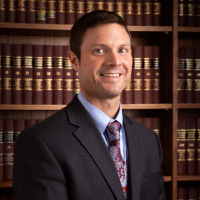Bradley DUI-DWI Lawyer, Michigan
Sponsored Law Firm
-
 x
x

Click For More Info:
-
Hannawa Law PC
2909 E Big Beaver Rd Troy, MI 48083» view mapCriminal Defense Law Full-service legal experts on your side.
Whatever the specific details of your situation may be, our attorneys are ready to fight for you and guide you through every step of the process.
248-466-0770
Thomas B. Baynton
✓ VERIFIEDCriminal, Bankruptcy, Divorce & Family Law, Traffic, DUI-DWI
I fight for you! Let My 29 Years of Experience Work For You!
At the Law Office of Thomas Baynton PLLC, Thomas Baynton is an experienced attorney serving the people of West Michigan. If you have been charged with... (more)
Wesley Johnson Todd
✓ VERIFIEDDUI-DWI, Criminal, Bankruptcy, Divorce & Family Law
Wesley Todd originally joined the firm as an intern in 2008. He has been a shareholder of the firm since 2020. He was born in Kalamazoo, Michigan and ... (more)
FREE CONSULTATION
CONTACTFREE CONSULTATION
CONTACTFREE CONSULTATION
CONTACTJeffrey L. Hampel
Family Law, Wills & Probate, DUI-DWI, Personal Injury, Bankruptcy & Debt
Status: In Good Standing Licensed: 47 Years
FREE CONSULTATION
CONTACT Nickolas Hannawa Troy, MI
Nickolas Hannawa Troy, MI AboutHannawa Law PC
AboutHannawa Law PC


